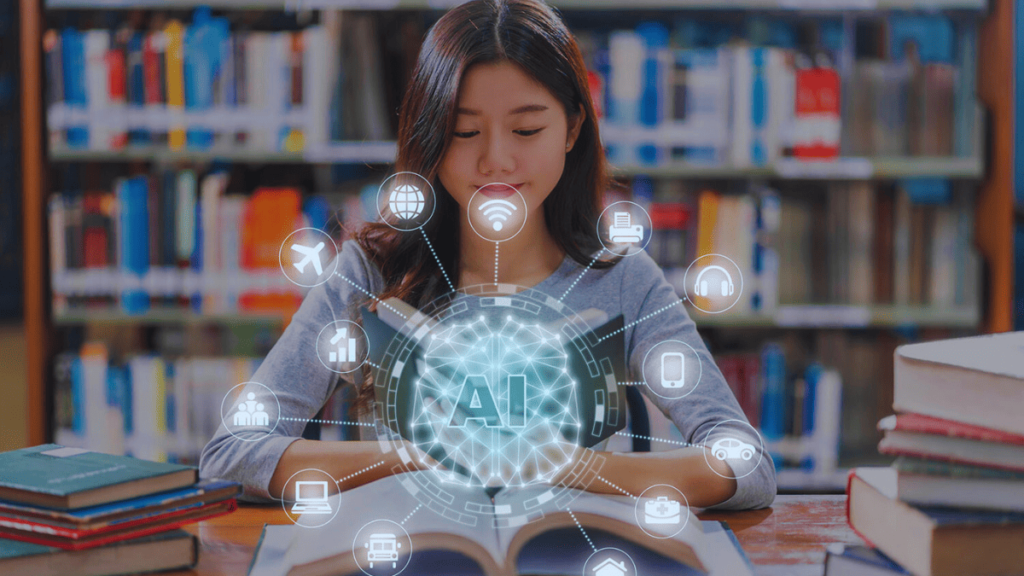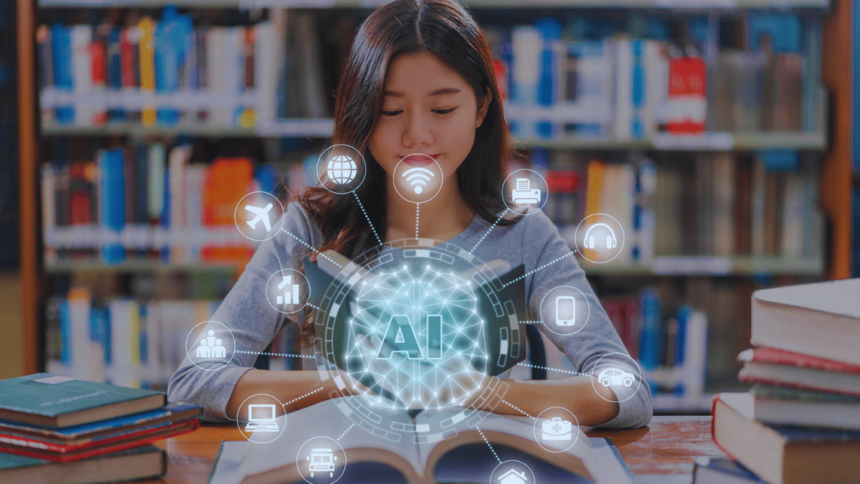In recent years, Louisiana schools have taken significant steps to incorporate Artificial Intelligence (AI) into their teaching strategies, especially to improve early literacy. Recognizing the importance of reading at a young age, these schools are implementing AI-driven tools to enhance children’s learning experiences and to ensure they build a strong foundation in literacy.

With the rising need for educational innovation, Louisiana has become a frontrunner in the use of AI for educational purposes, especially for young children learning to read. This article explores how these AI tools are being used in Louisiana’s schools, their benefits, and how they can reshape the future of early childhood education.
How Louisiana Schools Use Artificial Intelligence for Literacy
Schools across Louisiana are using AI-powered platforms and applications to support children as they learn to read. These tools provide interactive and engaging learning experiences tailored to individual student needs, identify areas where a child might need additional help, and adapt lessons accordingly.
The AI platforms in Louisiana schools provide personalized assessments, allowing teachers to track each student’s progress. For instance, if a student struggles with phonics, the AI tool detects this and customizes the lessons, repeating or adjusting the teaching methods until the child masters the skill. This individualized approach helps children gain confidence and achieve literacy milestones faster.
Key Benefits of AI in Early Reading Education
1. Personalized Learning Experience
Traditional classroom setups often face the challenge of meeting every student’s unique learning needs, especially in large classrooms. AI solves this by offering a one-on-one learning experience for every child. The AI systems identify a child’s reading level and provide suitable content, gradually increasing complexity as they improve.

2. Real-Time Feedback and Progress Monitoring
AI allows teachers and parents to receive real-time feedback on a child’s progress. This helps educators identify which areas need focus and improvement, enabling timely interventions. Teachers in Louisiana have reported that this feature is crucial in ensuring students do not fall behind their peers, as the data allows teachers to act proactively.
3. Gamification of Reading Skills
Louisiana schools also use AI to make reading more enjoyable. Through gamification, children feel like they are playing rather than studying, which helps maintain their interest in reading. Games that reward them for correct answers or progress keep children engaged and motivated, making learning an enjoyable process.
4. Improved Teacher Support
AI does not replace teachers; instead, it acts as a supplementary tool that assists them. Teachers are freed from repetitive tasks, such as grading and creating personalized exercises, which allows them to focus more on providing support to students. AI platforms also analyze each child’s data and give insights to teachers, helping them understand their students better.
Louisiana’s Success Stories with AI in Schools
Can A.I. tutor kids in reading?
— Patrick Wall (@patrick_wall) March 5, 2024
As Louisiana seeks to 'vastly expand' intensive tutoring, it's trying out a reading program powered by artificial intelligence. The program listens to kids read aloud and shows them how to sound out words that stump them.https://t.co/IdX71iAh6d
One remarkable success story in Louisiana is of a New Orleans elementary school that adopted AI technology two years ago. According to the school’s principal, reading scores have significantly improved since the AI integration. Students who initially struggled with reading basic sentences are now confidently reading paragraphs.
Another case from Baton Rouge highlights how AI helped a class of kindergarten students improve their phonics skills by 20% within a semester. By identifying the exact letter sounds and blends each student struggled with, the AI platform helped the teachers address these areas, resulting in noticeable improvement.
The Future of AI in Early Childhood Education
The promising results of AI use in Louisiana schools suggest that the technology could play an even larger role in education across the United States. AI has the potential to revolutionize traditional teaching methods, especially for young children learning to read. As AI continues to evolve, so will its capabilities in identifying learning patterns, adapting to different teaching methods, and integrating new learning approaches.

In the future, AI tools could support additional aspects of language arts education, such as grammar, comprehension, and writing. For now, Louisiana’s initiative has set a valuable example for other states considering the adoption of AI in classrooms.
Challenges and Considerations
Despite the benefits, there are some challenges associated with implementing AI in schools. Privacy concerns, for example, arise as AI platforms collect and analyze data on children’s learning habits. Louisiana schools have addressed this by using secure systems that comply with federal and state privacy standards, ensuring that children’s data is protected.
Moreover, AI implementation can be costly, and not all schools have the budget to adopt these technologies. However, Louisiana’s government is working towards making AI tools accessible for all public schools through grants and partnerships, aiming to bridge the gap between schools in affluent areas and those in underserved communities.
Conclusion: A Bright Future for Young Readers
Louisiana schools’ use of Artificial Intelligence to teach reading is a powerful example of how technology can support early childhood education. By tailoring lessons to meet each child’s unique needs and making learning interactive and enjoyable, AI is not only helping young students achieve literacy milestones but also fostering a lifelong love for reading. As AI technology becomes more affordable and widely available, other states are likely to follow Louisiana’s lead, embracing AI as an essential tool in education.
The progress being made in Louisiana schools underscores the potential for AI to transform education, ensuring that every child receives the help they need to succeed. With more schools using AI, we can expect a generation of young readers who are more confident, engaged, and ready for the future.
How is AI used in Louisiana schools for reading?
AI provides personalized reading lessons that adapt to each child’s skill level, helping them improve phonics, vocabulary, and reading comprehension.
What benefits does AI bring to early reading education?
AI tracks progress, identifies areas needing support, and offers real-time feedback, allowing teachers to focus on targeted help.
Does AI make reading more fun for kids?
Yes! AI gamifies reading exercises, making learning engaging and enjoyable, which encourages young students to keep reading.

